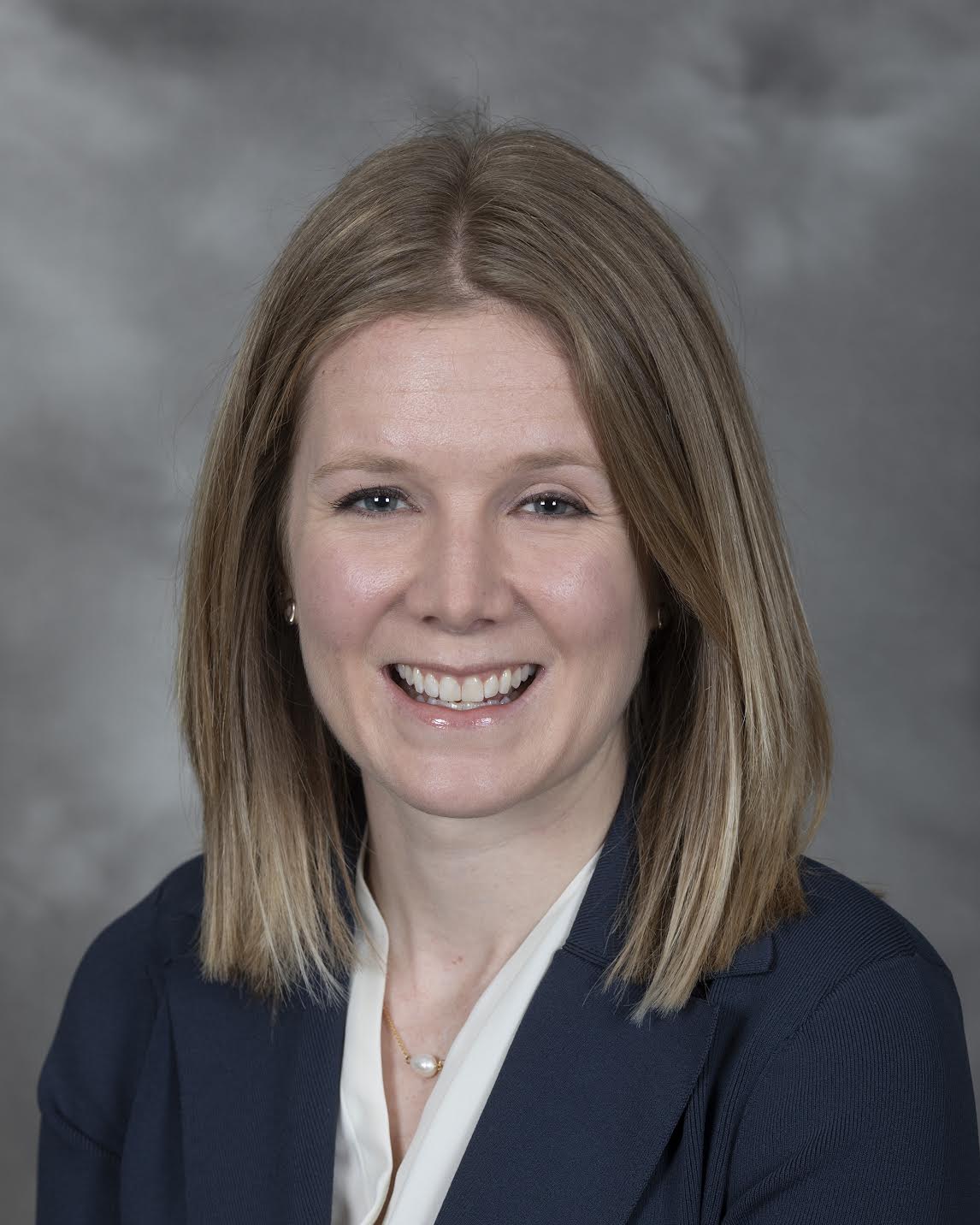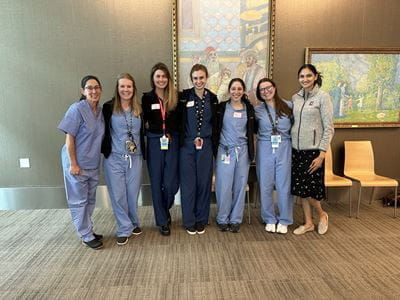Erika Daley, MD, didn’t have a traditional path to orthopaedic surgery. “A lot of orthopaedic surgeons say that they tore their ACL in high school, and then they just knew that they wanted to do ortho,” she said.
This was not the case for the Assistant Professor of Clinical Orthopaedic Surgery and Associate Program Director of the IU School of Medicine Orthopaedic Surgery Residency. Unlike many of her peers, she originally went to medical school to become a pediatrician. “I always knew that I liked taking care of kids, and so that was my plan.”
But Daley’s trajectory changed during medical school. “I found that I really loved my surgery block. I blended in a lot more with the personalities, and I really liked the instant gratification of surgery,” she recalled.
Part of orthopaedic surgery’s appeal was the immediate outcome from treating patients. “You have a patient with a problem, you take them to the operating room, and you make it better.”
Daley decided to pursue orthopaedic surgery—but her initial dream of treating children didn’t end. “When I went into my residency, I knew I wanted to do pediatric work. Kids don't have ulterior motives. They want to get back to playing. They want to get back to their sports. They just want to get better,” she said.
There’s an added layer of difficulty when performing surgery on children, but this makes Daley’s job even more rewarding. “A lot of the way that we treat our patients requires knowing how much growth they have remaining and their ability to innately heal themselves, which I think is really fun.”
Now, she’s a pediatric orthopaedic surgeon at Riley. Her favorite surgery is treating kids with hip dysplasia, which requires hip reconstruction when the hip socket is too shallow. Daley performed one of these surgeries about six months after starting at Riley.
“I did the surgery when she was two. She’s five years old now and headed to kindergarten, and she's doing great,” Daley recalled. “I just saw her last week. She gave me this huge hug. Some of those cases are really fun, when you have a gratifying, good outcome and a grateful family.”
Joining the IU family

Daley joined the IU School of Medicine in September 2021. For her and her family, it was an easy decision. “I've done all my training in the Midwest. I always knew I wanted to teach, so I was really interested in a job in an academic place,” Daley remembered.
“The stars kind of aligned. It was where we wanted to live, the job was a really great opportunity, and I get to do a lot of teaching and mentorship, which is what I really wanted to do.”
The ability to work, teach and practice clinically all in one system is what drew Daley to Indianapolis, especially the variety and caseload at Riley. But Daley was also drawn in by the department environment.
She has taken full advantage of the department’s opportunities and advancement-focused culture. “There's been a lot of opportunities for me to get involved in leadership very early,” she remembered.
“I spoke with our department when I first got here. I was really interested in resident education and have gradually worked my way up through the leadership to being associate program director.”
Making a name for herself in a male-dominated field
Daley is incredibly proud of where she is today, and she recognizes the importance of intentional mentorship from others in the field. “When I first started looking at orthopaedics, there were a lot of men,” she said.
Only 16% of orthopaedic surgery residents are women, and only 6% of orthopaedic surgeons are women. “It’s a different experience when you’re in a small minority within a group. It’s important to have those mentors all along the path.”
Daley had the added challenge of changing paths during medical school. She looked to other women in the field throughout her medical school and residency journey to help her navigate the field. Without their guidance, she might not be the surgeon she is today.
“When I rotated in ortho as an M3, I had the opportunity to work with one of the second-year ortho residents at my med school. She was one of the only women in the program, and she was just fantastic,” Daley remembered.
“I really saw a lot of myself in her, and it was like, if she can do it, then I can do it. She helped support me through my application process, and then same thing when I got to residency.”
Now, Daley is a mentor for other women in the field. In addition to mentoring residents as the Associate Program Director, Daley and other women colleagues from the School of Medicine brought the Perry Initiative to IU.
“It's a national program that's designed to encourage women to go into careers in STEM, particularly like orthopaedic surgery,” Daley explained. The program offers mentorship and resources to young women pursuing medicine, science, technology and engineering.
“The department gave us full funding and support to bring the Perry Initiative forward.”
Although the field of orthopaedic surgery remains male-dominated, the Perry Initiative and Daley’s other mentorship efforts are paying off. The department continues adding women faculty members, researchers, residents and fellows yearly. “Knowing how I ended up in orthopedics, mentorship to the people lower down the ladder is important to me.”
Daley looks forward to welcoming and mentoring the next generation of women pursuing orthopaedic surgery at IU.
